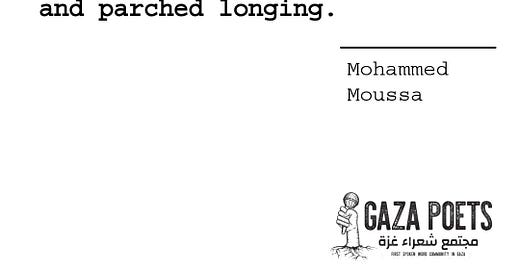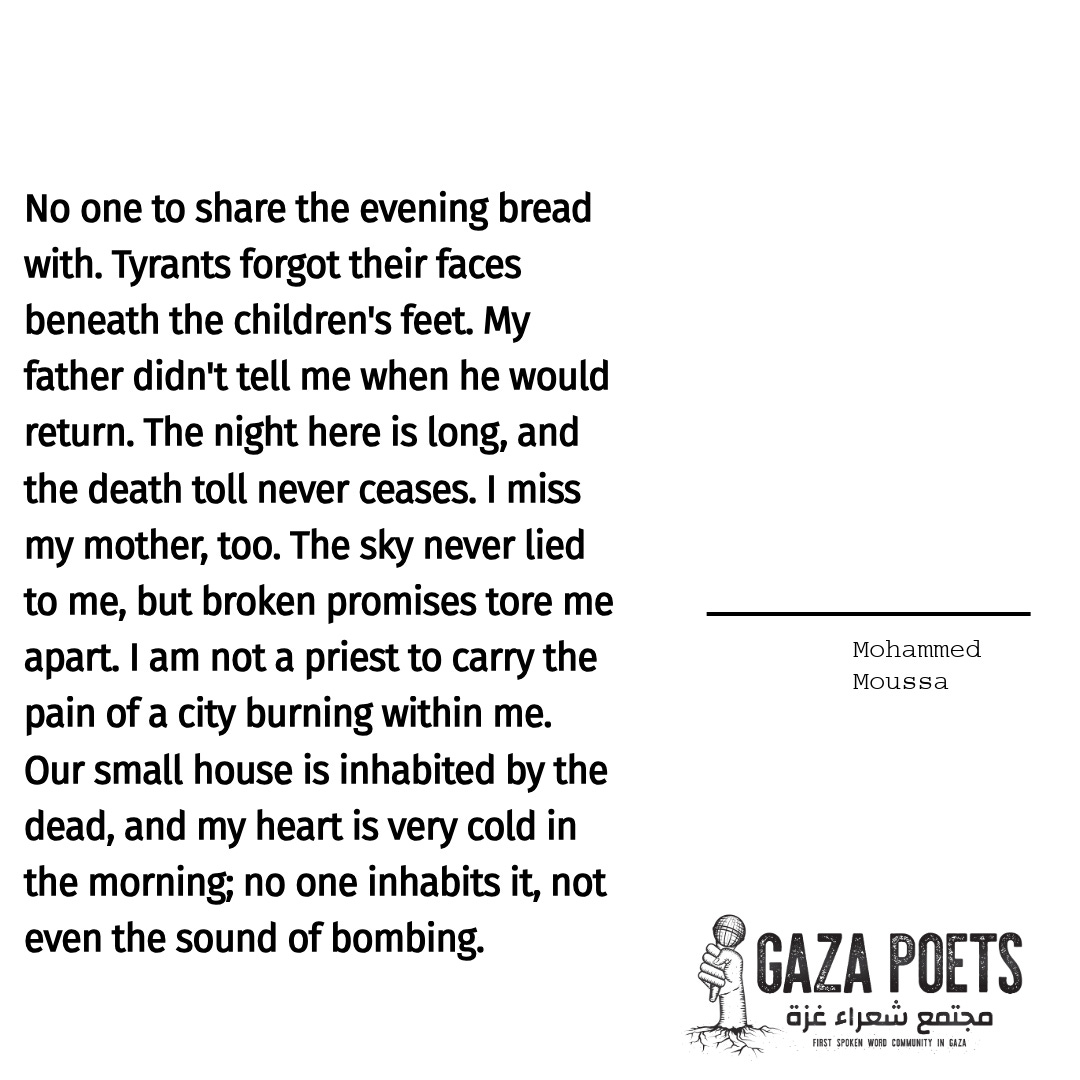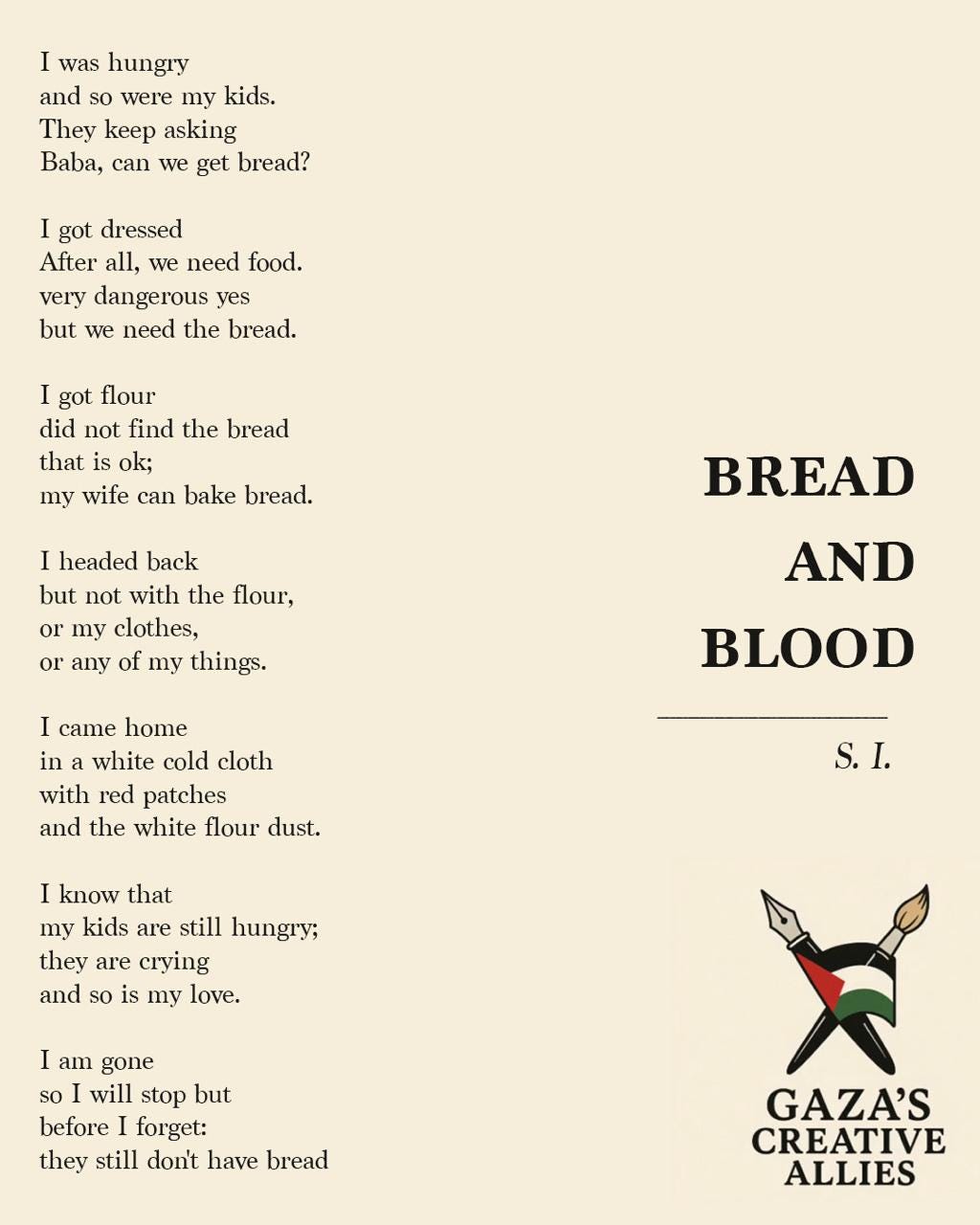Review by Louise Sullivan of poems by Mohammed Moussa and a poem from Gaza's Creative Allies.
This poem is about absence; the kind of emptiness one can only feel under the harsh light of a dry summer. June is typically a month of joy and laughter, vacations and family. Desolation is evoked by using the month of June; darker months allow for possibility, because maybe what is wanted just can’t be seen. But the harsh sunshine of June highlights the stark emptiness of life in death. This poem enables us to feel the June of Gazans, the dry, emptied space, both around and inside the writer.
This poem is an image of loss painted by stark words. It is like a black and white cubist portrait of a man in a bombed out house; the words are sharp edges and shadows. Reading it, you can feel the waiting. War is a lot of waiting, as we also know from letters preserved from previous wars. This poem draws us in, just like the aforementioned painting, a deceptively simple surface, but the more you read (look) at it, the more layered and mesmerising it is.
This work reads as a historical document as much as a poem. The staccato beat of the lines evokes the heaviness of despair of life under siege. It leaves the reader with an unanswered call to action, a plea that is actually a statement of fact, not an entreaty. There is death, there is lack. The poem haunts the reader, the last lines are the lines of a ghost, ensuring the reader will not forget.







